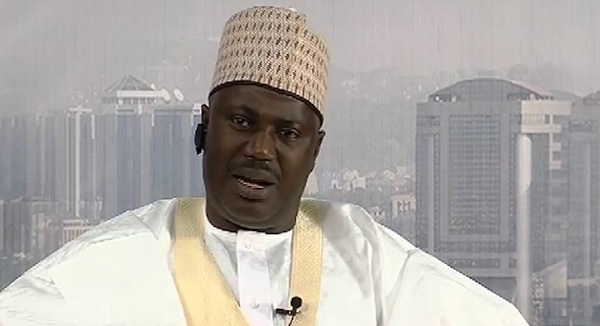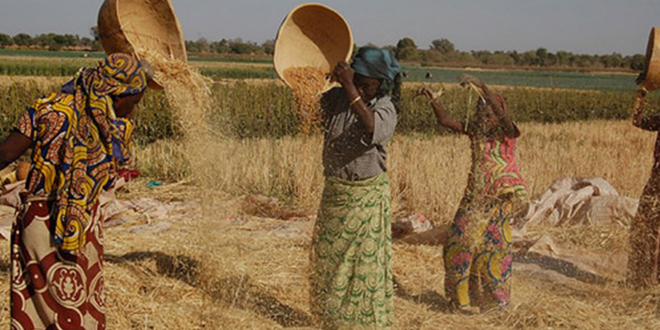An Enugu-based Catholic priest, Very Rev. Fr. John Amadi, has said that the New Yam Festival celebrated in Igbo land is in conformity with Christian teachings.
Amadi made the assertion on Saturday while delivering a homily at a concelebrated Holy Mass at the St. Cyril Catholic Parish, Egede, in Udi Local Government Area of Enugu State to mark the 2023 New Yam Festival, (Akani).
According to him, the Catholic Church has always supported the observance of certain cultural heritage that do not conflict with Christian teachings.
The cleric likened the New Yam festival to the church tradition of annual harvest and thanksgiving service where Christians come in thanksgiving to God for successful end of the farming season and for bountiful blessing from God.
“The New Yam festival is a celebration of dedication and hard work as exemplified in the parable of the Talent.
“The parable of the Talent teaches that success is a product of hard work and dedication to duty,”.
He admonished the people of Egede Town to embrace peace, unity and hard work for their well being and overall development.
The cleric remarked that Egede, being a land of great men and women of valour, who have excelled in different spheres of life, needed peace and unity to take their place in comity of progressive societies in the state.
Speaking on the essence of the New Yam festival, the traditional ruler of Ibute Egede, His Royal Highness, Igwe Ikenna Okwesili, who performed the Iwa-ji, (the cutting of the new yam) described the festival or Akani as the time the community began to eat the new yams of the year.
Okwesili noted that the eating of the new yam signalled the end of famine and food shortage each year as hunger reduced.
He remarked that Egede had been agog for days because of the age-long Akani (Iri ji) which enjoyed impressive glamour, that attracted indigenes of various communities, including those in the Diaspora, their friends and well-wishers.
In a welcome address, the President, Egede Progressive Movement, Dr. Chidi Uzuegbu, stated that the event was put together to bring about peace and unity amongst the various parts of Egede.
Uzuegbu pointed out that the Akani festival had always been a melting and meeting point for friends and relatives who shared age-long blood familial and cultural bond and ties to renew their oneness and solidarity.
He informed the gathering that this year’s New Yam festival also offered them the opportunity to honour a Statesman and worthy friend of Egede, the former Governor of Enugu State, Sullivan Chime, whose administration benefitted the people of Egede immensely.
He said that Chime’s administration built the only access road, the Eke, Ebe, Egede, Affa, Akpakwume/Nze road as well as being the administration that gave Egede indigenes the number of government appointments such as Special Advisers and Permanent Secretaries.
Earlier in his keynote address, the chairman of the occasion, Professor Eddy Ndibuagu commended the leadership of the Egede Progressive Movement for working assiduously towards the advancement of the peace, unity and progress of Egede people.
Responding, former Gov. Chime expressed gratitude to the Egede Progressive Movement, and entire people of Egede for their gesture of goodwill and recognition saying that he was humbled by the honour done to him.
He equally remarked that he was not in Egede because of what he did for the people as a governor but to share his solidarity and good friendship with his people.
Other distinguished guests who graced the occasion include the Senator representing Enugu West, Osita Ngwu who was represented by Uche Alor, the Speaker of Enugu State House of Assembly, Rt. Hon. Uche Ugwu, Prof Jide Chime, and Secretary of Udi Local Government, Collins Amalu amongst others.
Other major highlights of the celebration was cultural display by various dancing groups and the presentation of special Awards to some illustrious sons and daughters of the town.
It was gathered that in the past and typical in all Igbo communities, it was a taboo for any indigene to eat new yam before the traditional “Iwa ji or Akani ceremony is performed by the royal father.
Big tubers of roasted yam are usually brought to public glare, before the traditional ruler, along with a bowl of oil bean salad, known in local parlance as Ukpaka.
The Ukpaka is usually garnished with palm oil, pepper and other delicious condiments that ultimately make the eating of the new yam pleasurable and memorable.
NAN









